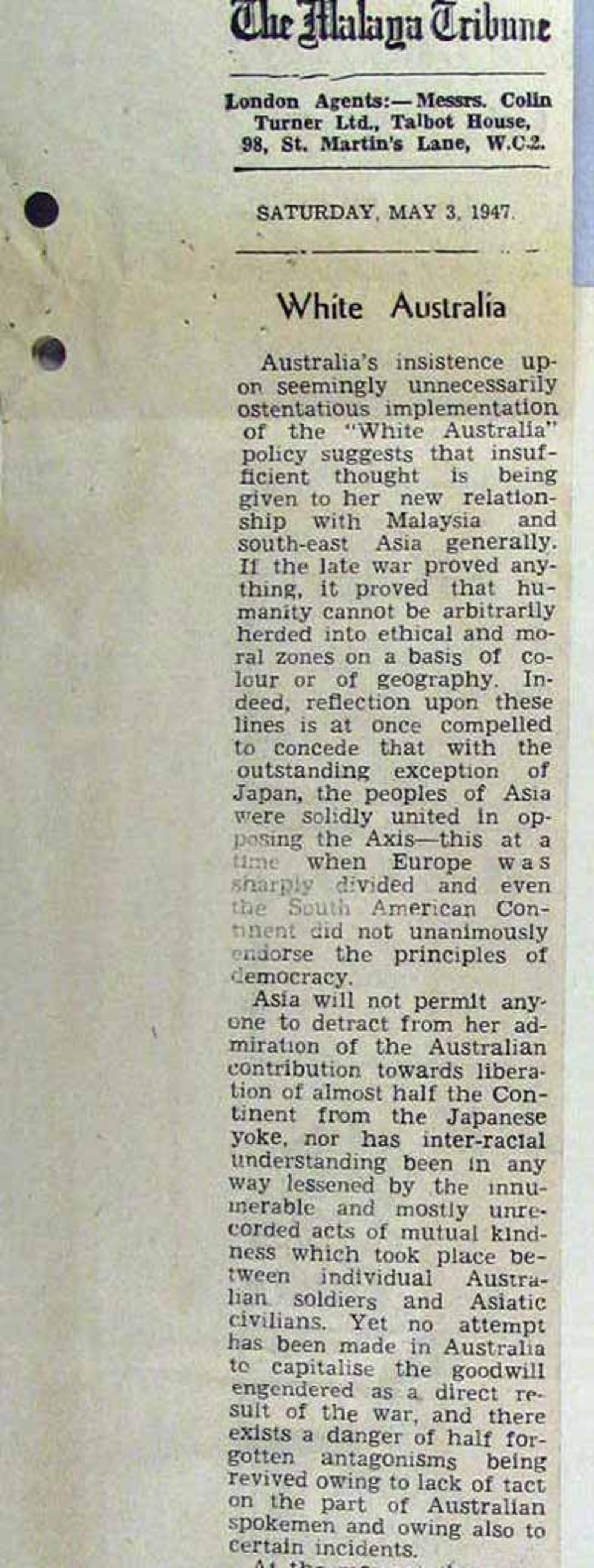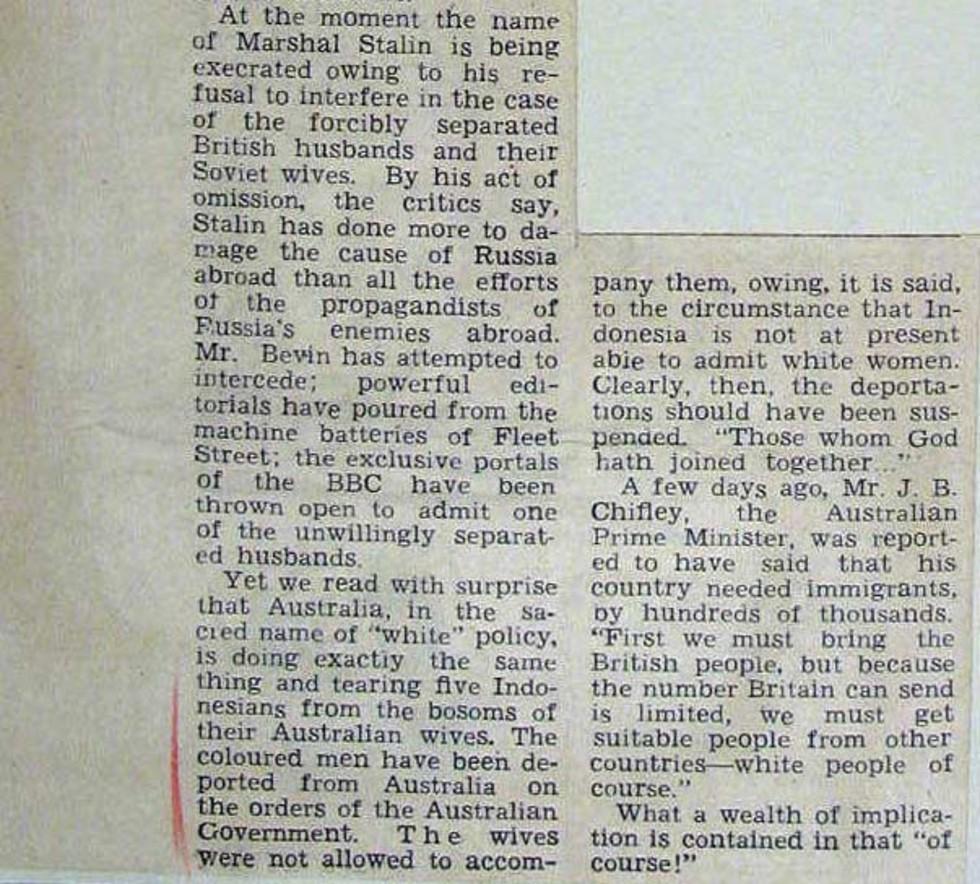

Aboriginal and Torres Strait Islander people should be aware that the National Archives' website and collection contain the names, images and voices of people who have died.
Some records include terms and views that are not appropriate today. They reflect the period in which they were created and are not the views of the National Archives.



[Page 1.]
The Malaya Tribune
[Dividing line.]
London Agents:- Messrs. Colin Turner Ltd., Talbot House, 98, St. Martin's Lane, W.C.2.
[Dividing line.]
SATURDAY, MAY 3, 1947.
[Dividing line.]
[Heading:] White Australia
Australia's insistence upon seemingly unnecessarily ostentatious implementation of the "White Australia" policy suggests that insufficient thought is being given to her new relationship with Malaysia and south-east Asia generally. If the late war proved anything, it proved that humanity cannot be arbitrarily herded into ethical and moral zones on a basis of colour or of geography. Indeed, reflection upon these lines is at once compelled to concede that with the outstanding exception of Japan, the peoples of Asia were solidly united in opposing the Axis – this at a time when Europe was sharply divided and even the South American Continent did not unanimously endorse the principles of democracy.
Asia will not permit anyone to detract from her admiration of the Australian contribution towards liberation of almost half the Continent from the Japanese yoke, nor has inter-racial understanding been in any way lessened by the innumerable and mostly unrecorded acts of mutual kindness which took place between individual Australian soldiers and Asiatic civilians. Yet no attempt has been made in Australia to capitalise the goodwill engendered as a direct result of the war, and there exists a danger of half forgotten antagonisms being revived owing to lack of tact on the part of Australian spokemen [sic] and owing also to certain incidents.
[Page 2.]
At the moment the name of Marshal Stalin is being execrated owing to his refusal to interfere in the case of the forcibly separated British husbands and their Soviet wives. By his act of omission, the critics say, Stalin has done more to damage the cause of Russia abroad than all the efforts of the propagandists of Russia’s enemies abroad. Mr. Bevin has attempted to intercede; powerful editorials have poured from the machine batteries of Fleet Street; the exclusive portals of the BBC have been thrown open to admit one of the unwillingly separated husbands.
Yet we read with surprise that Australia, in the sacred name of "white" policy, is doing exactly the same thing [emphasised with vertical line in red pen in the margin] and tearing five Indonesians from the bosoms of their Australian wives. The coloured men have been deported from Australia on the orders of the Australian Government. The wives were not allowed to accompany them [end emphasis], owing, it is said, to the circumstance that Indonesia is not at present able to admit white women. Clearly, then, the deportations should have been suspended. "Those whom God hath joined together…"
A few days ago, Mr. J. B. Chifley, the Australian Prime Minister, was reported to have said that his country needed immigrants, by hundreds of thousands. "First we must bring the British people, but because the number Britain can send is limited, we must get suitable people from other countries – white people of course."
What a wealth of implication is contained in that “of course!"
Learn how to interpret primary sources, use our collection and more.
